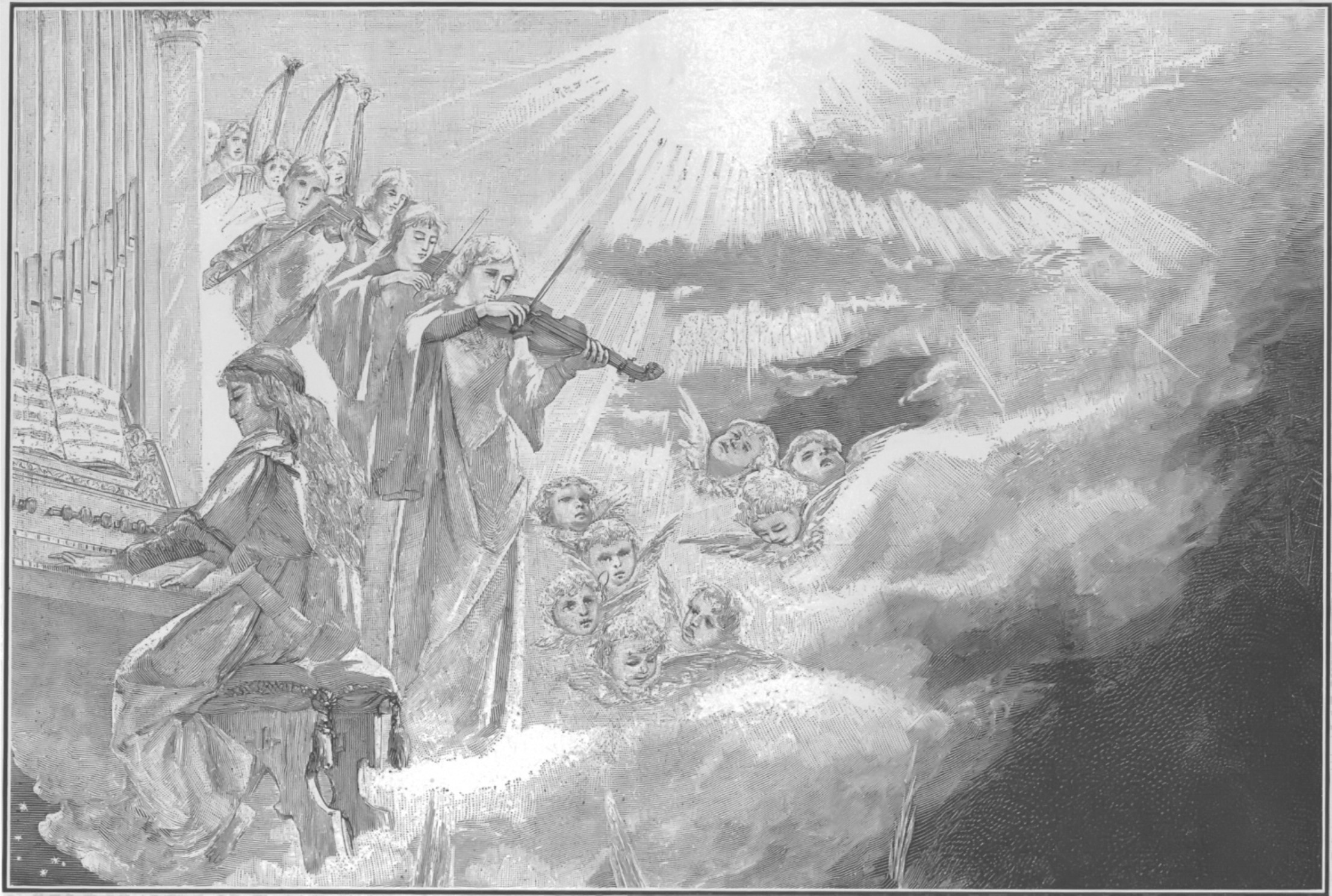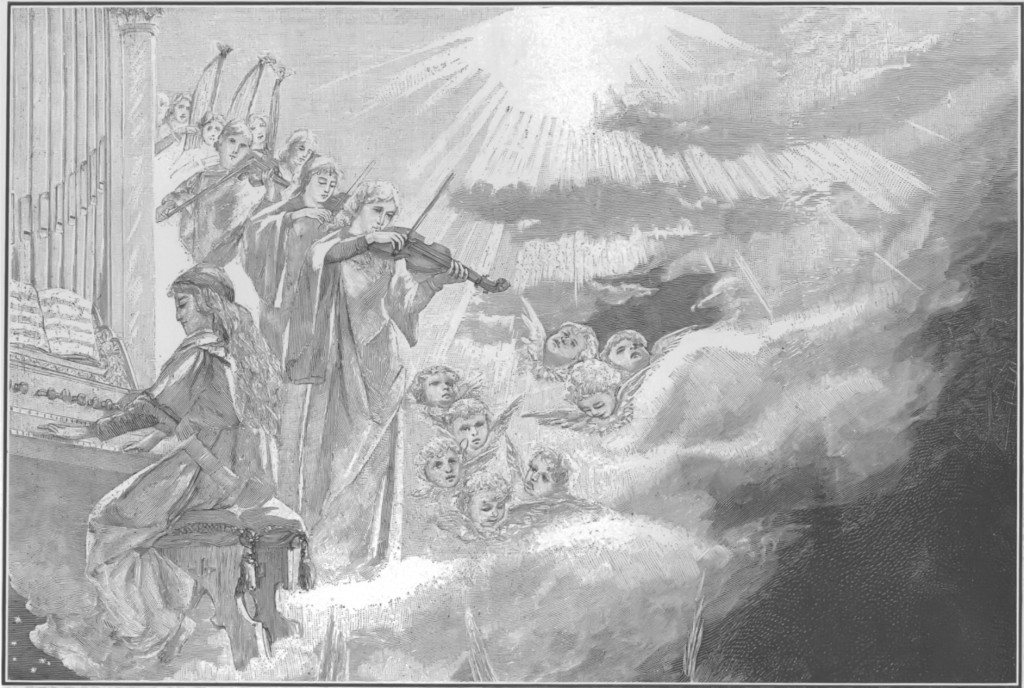From “A Short Declaration of the True, Lively and Christian Faith”
A man may soon deceive himself, and think in his own fantasy that he by faith know God, love him, fear him, belong to him, when in very deed he doth nothing less.
For the trial of all these things is a very godly and Christian life. He that feel his heart set to seek God’s honor, and studies to know the will and commandments of God, and to frame himself thereunto, and leads not his life after the desire of his own flesh, to serve the devil by sin, but sets his mind to serve God for God’s own sake, and for His sake also to love all his neighbors, whether they be friends or adversaries, doing good to every man, as opportunity serves, and willingly hurting no man ; such a man may well rejoice in God, perceiving by the trade of his life that he unfeignedly hath the right knowledge of God, a lively faith, a steadfast hope, a true and unfeigned love and fear of God. But he that casts away the yoke of God’s commandments from his neck; and gives himself to live without true repentance, after his own sensual mind and pleasure, not regarding to know God’s word, and much less to live according thereunto ; such a man clearly deceives himself, and sees not his own heart, if he thinks that he either know God, loves him, fears him, or trusts in him.
Some peradventure fancy in themselves that they belong to God, although they live in sin; and so they come to the Church, and show themselves as God’s dear children. But St. John says plainly, If we say that we have any company with God, and walk in darkness, we do lie.
Others do vainly think that they know and love God, although they pass not of his commandments. But St. John says clearly, He that says, I know God, and keeps not his commandments, is a liar.
Some falsely persuade themselves, that they love God, when they hate their neighbors. But St. John says manifestly, If any man say, I love God, and yet hates his brother, he is a liar. He that says that he is in the light, and hates his brother, he is still in darkness. He that loves his brother dwells in the light; but he that hates his brother is in darkness, and walks in darkness, and knows not whither he goes: for darkness hath blinded his eyes. And moreover he says, Hereby we manifestly know the children of God from the children of the devil: He that doth not righteously is not the child of God, nor he that hates his brother.
Deceive not yourselves, therefore, thinking that you have faith in God, or that you love God, or do trust in him, or do fear him, when you live in sin : for then your ungodly and sinful life declares the contrary, whatsoever you say or think. It pertains to a Christian man to have this true Christian faith; and to try himself whether he hath it or no; and to know what belongs to it, and how it doth work in him. It is not the world that we can trust to ; the world, and all that is therein, is but vanity. It is God that must be our defense and protection against all temptation of wickedness and sin, errors, superstition, idolatry, and all evil. If all the world were on our side, and God against us, what could the world avail us? Therefore let us set our whole faith and trust in God, and neither the world, the devil, nor all the power of them, shall prevail against us. Let us therefore, good Christian people, try and examine our faith, what it is ; let us not natter ourselves, but look upon our works, and so judge of our faith what it is. Christ himself speaks of this matter, and says, The tree is known by the fruit. Therefore let us do good works, and thereby declare our faith to be the lively Christian faith. Let us, by such virtues as ought to spring out of faith, show our election to be sure and stable; as St. Peter teaches, Endeavour yourselves to make your calling and election certain by good works. And also he says, Minister or declare in your faith virtue, in virtue knowledge, in knowledge temperance, in temperance patience, in patience godliness, in godliness brotherly charity, in brotherly charity love. So shall we show indeed that we have the very lively Christian faith; and may so both certify our conscience the better that we be in the right faith, and also by these means confirm other men. If these fruits do not follow, we do but mock with God, deceive ourselves, and also other men.
Well may we bear the name of Christian men, but we do lack the true faith that doth belong thereunto: for true faith doth ever bring forth good works; as St. James says, Show me thy faith by thy deeds. Thy deeds and works must be an open testimonial of thy faith: otherwise thy faith, being without good works, is but the Devil’s faith, the faith of the wicked, a fantasy of faith, and not a true Christian faith. And like as the devils and evil people be nothing the better for their counterfeit faith, but it is unto them the more cause of damnation ; so they that be christened, and have received knowledge of God and of Christ’s merits ; and yet of a set purpose do live idly, without good works ; thinking the name of a naked faith to be either sufficient for them, or else, setting their minds upon vain pleasures of this world, do live in sin without repentance, not uttering the fruits that do belong to such an high profession; upon such presumptuous persons and willful sinners must needs remain the great vengeance of God, and eternal punishment in hell, prepared for the unjust and wicked livers.
Therefore as you profess the name of Christ, good Christian people, let no such fantasy and imagination of faith at any time beguile you; but be sure of your faith; try it by your living; look upon the fruits that come of it; mark the increase of love and charity by it towards God and your neighbor; and so shall you perceive it to be a true lively faith. If you feel and perceive such a faith in you, rejoice in it; and be diligent to maintain it and keep it still in you ; let it be daily increasing, and more and more be well working ; and so shall you be sure that you shall please God by this faith ; and at the length, as other faithful men have done before, so shall you, when his will is, come to him, and receive the end and final reward of your faith, as St. Peter names it, the salvation of your souls. The which God grant us, that hath promised the same unto his faithful ; to whom be all honor and glory, world without end.
Amen.
So I’ve been reading through some of Dietrich Bonhoeffer’s sermon transcripts prior to his arrest and subsequent death. I stumbled upon this gem that I found to be very timely and relevant to events in the church today. The basic background of this sermon is it happened after the new Chancellor, Franz von Papen, took office in Germany. Papen hoped to form a society more in the German tradition, and a part of this tradition was invoking the name of God at the beginning of Parliament sessions. This is something the government used to do, but no longer did and was now going to be reinstated by Papen.
This sermon excerpt is taken from a sermon given on June 12, 1932 called “Risen with Christ.” It is on Colossians 3:1-4 :
If then you have been raised with Christ, seek the things that are above, where Christ is, seated at the right hand of God. Set your minds on things that are above, not on things that are on earth. For you have died, and your life is hidden with Christ in God. When Christ who is your life appears, then you also will appear with him in glory.
“Dear congregation, that is certainly an extremely off-putting way to start a conversation with a person: Since you have been raised with Christ, do this and that. We have been baptized. We have been confirmed. There were times when we felt like opening the Bible. We are interested in various religious questions. Maybe we even stand by our church with loyalty and love. And finally, after all: we live in a world that over the last one and a half to two thousand years under the name of Jesus Christ has developed as a Christian world. And nevertheless: if anyone tried to start a conversation with us by just speaking to us about the fact that we have been raised with Christ, we would probably prefer not to continue to speak with them.
…
One need only walk through the streets, look at the people, and ask yourself whether they accept this premise and live their lives on the basis of it, in order to see that what we call Christianity is, in human terms, hopelessly in need, that it is greatly impoverished, whether the churches are filled to overflowing as in America or almost empty as in much of Germany.
Our fathers still said, “In the name of God, Amen.” They still lived under the illusion that with that, they had said something that everyone had in common, that was an obligation to them all, that bound them all together. But they probably never allowed this “In the name of God, Amen” to become too dangerous, too disturbing, too revolutionary.
And why should they? This opening, this premise, could just as well mean everything as nothing. Having said these words, one could confidently draw the line and just go on, unworried and unswerving, and in the name of humankind make decisions and decrees and pass statutes, whatever one thought was good and whatever one liked. One went one’s way in complete freedom, with the name of God harmlessly backing one up and the earthly well-being of human beings in view.
…
Perhaps at first we are intoxicated by this grandiose prospect; we feel drunk in this gigantic freedom, without God and without hope, without a goal and without restraint, rushing violently ahead into chaos. Even the greatest futility can be intensified into pathos and art, into life and motivation. But as soon as we stop, sober up from our intoxication, come to our senses, it becomes unbelievably empty inside us: “Do you not taste the cup of nothingness, that dark drink?” And now what, what do we want now? Do we want to survive another crisis and then die, or what do we really want? We are told: “I have been through too much, I cannot be without religion anymore”; and that probably means: I have already looked too deeply into nothingness to be able to stand being in it any longer. So go back – but back to where? We read that a government issues a proclamation that a whole nation should be rescued from collapse – by the Christian worldview. So we are all fleeing, individuals and nations, fleeing from an incomprehensible last collapse. “In the name of God, Amen” is to be used again. Religion is to be cultivated again and a Christian worldview spread.
Oh how poor, oh, how weak, oh, how pitiful all of that sounds. Do we think that we would really let ourselves be taken captive a second time by this “In the name of God, Amen?” That we would let it really determine our actions, that we, you and I, rich and poor, German and French, would let ourselves be bound together by this name of God? Or is there not really, hidden behind our religious tendencies, our irrepressible craving for freedom and our own will – to in the name of God what we want, in the name of the Christian worldview to play off one nationality against another and stir them up to conflict with one another?
And only now does it fall like scales from our eyes; only now are we overcome by the certainty of the monstrous fact – that we are fleeing from God. Whether we dare to drink the cup of nothingness, that dark drink, or we avoid it by taking refuge in religious busyness and talk, we are fleeing from that other cup that the Bible has tasted and which it proclaims to the world in a powerful voice: the cup of the wrath of God, the cup of the consuming fire of the living God. Our disobedience is not that we are so little religious but that we actually would like very much to be religious, find it very edifying when someone somewhere says and writes: “In the name of God, Amen,” are very much reassured when some government or other proclaims the Christian worldview. It is our disobedience, it is our fleeing, it is our calamitous downfall – that we, the more pious we are, are all the less willing to let ourselves be told that God is dangerous; that God does not allow God’s self to be mocked; that we human beings must die if we really want to have anything to do with the living God; that we must lose our life if we really want to gain it; that we must be baptized not only with water but also with fire and the spirit; that this “In the name of God, Amen,” if it really is to have any meaning and not be just empty talk, is a majestic region one can enter only as a completely captive slave – or not at all.
To drink this cup of God’s, if one really knows what one is doing, that is serious. And to drink the cup of nothingness, that dark drink, if one really knows what one is doing, is also serious – and the eternal God with his glowing promise is infinitely closer to those who do this than they could imagine from afar.”
This post is a continuation in a series:
—–
Ascribe to the Lord, O heavenly beings,
ascribe to the Lord glory and strength.
Ascribe to the Lord the glory due his name;
worship the Lord in the splendor of holiness. – Psalm 29:1-2, ESV
I’m continuing this series today not so much with a principle, rather with a practice. This practice is a discipline and an exercise, and something I am not at all perfect at. This is a discipline very closely related to my first post in the series (Everything Must Point to the Gospel). Whenever I am reading and studying any text in the Bible, I try to answer the following question:
What reading and understanding of these verses or passages gives God the most glory, honor and praise?
Our God is in himself beyond comprehension in his holiness and perfection. He is the creator of all things, seen and unseen. He is completely sovereign over all things. He is so caring and loving that he would sacrifice himself for sinners who are running far from him.
Words cannot describe his beauty and magnificence! Truly, there is nothing or no one like him. It is because of his goodness, perfection, power and holiness that he is absolutely deserving of our glory, honor and praise. But what does that look like for us? Part of becoming Christian is realizing that we don’t give God the glory he deserves on a daily basis. At its root, this tendency comes from our sinful nature. We all have it, and we all do it. This sinful nature is something that only God through the Holy Spirit can remedy in us. Only he melts hearts, and only he draws sinners to himself.
So what then is our responsibility? God has left his Word with us, the Bible. This Bible is absolutely littered and saturated with descriptions of God as glorious, holy and worthy of praise. Seriously, just do a word or index search on any of those words and it is everywhere. What do we do with that? How should that impact our reading of the Scriptures?
Our handling of the Biblical text must ultimately point to God’s glory, his holiness, his goodness, and lead us to honor and praise him in everything we do. If we do anything but that, then we are making a mockery of who He is. If we seek to undermine the text, write it off as not authoritative, explain it away, read ourselves into the text and make it all about us, or anything of the sort then we are staining something that is perfect and holy.
All that to say, I’ve found the discipline and practice of trying to answer the bolded question very helpful, practical and biblical in my Christian walk. Perhaps a common example of this concept might help. One passage and its interpretation that has completely changed by my application of this discipline is Matthew 14:22-32. In this passage, Jesus comes to the disciples in a storm while walking on water. The climax of this passage is Peter being commanded by Jesus to come out to him on the waves, but watch out! The wind and the waves cause Peter to become afraid and he starts to sink in the water. The passage concludes with Jesus asking “O you of little faith, why did you doubt?”
The most common application of this passage that I’ve heard goes something like this: you and I are Peter, and the wind and the waves are all of life’s problems – stop looking around at the waves, and start looking at Jesus. Even typing that summary makes me a little nauseous. Is that really what this passage is about? I believe that application serves to demean and exalt ourselves by reading us into the passage. That isn’t to say that God doesn’t care about our problems, and that he isn’t Lord over our circumstances, because he certainly is – this just isn’t the passage to make that point (more on this in part 5).
This passage must be and is about God’s glory. And his glory is on display through the demonstration of Christ’s divinity and control over nature, the properties of matter, gravity, etc. He is power. Moreover, this passage displays Christ’s sovereignty in those whom he calls to himself. Peter acknowledges that it is Christ who does the calling, and he is incapable of coming unless it is granted to him by Christ. God’s divinity and his sovereignty are what are on display in this passage, and nothing less.
Just like anyone else, I am imperfect in much of my understanding of the Scriptures. I have my weaknesses and my blind spots, and I often err in my understanding. However, I think this practice is a helpful one. If there is one thing we can be confident on it is this: we can never give God too much credit, too much honor, and too much praise. He is worthy of it all.
To our God and Father be glory forever and ever. Amen. – Philippians 4:20, ESV
Grace. I am so undeserving of grace. Why me, oh Lord?
Consider not I, who would at a young age feign faith yet know you not, rejecting your daily mercies. Consider not I, who at my core am nothing but a lying, thieving, adulterous, man-hating, selfish, prideful and covetous man. For what reason am I deserving of your grace and mercy? Why would you, while I am consciously rejecting and blaspheming your very name, choose to open my eyes and ears to see the beauty of the gospel? “Oh wretched man that I am! Who can save me from this body of sin and death?”
Surely there are others more deserving. Consider instead the social worker who fights daily for justice for children, yet she remains far from you. Consider instead the politician who gives their life towards advocating peace, yet he does not know you. Consider instead those who give up everything to bring relief to people in need, yet they have not experienced your love. Consider instead the doctor serving in low-income areas, who provides medical care to the neglected, yet remains entirely resistant to the very idea of your existence.
Why me, oh Lord? Why would you choose me as your “vessel of mercy”, while I was running farther and farther from you? How could you bring me so near to your holy throne, a filthy and stained sinner like me?
Is it true, as your Word says, that the heart of man is entirely wicked and that we have all gone astray? Is it true, my God, that there is “not one who does good” and that our righteous deeds are like “filthy rags” to you? Who then is worthy to receive your grace?
Indeed my God and Savior, there is not one who is deserving of your grace. For if we could earn your grace, it would no longer be grace. How could we then be so far from you that we would reject the very idea that “while we were yet sinners, Christ died for us?”
What love is this, that it would please you to bring filthy and dirty people like myself into your presence? How great a love that shows mercy to those who “act ignorantly in unbelief.” For in us you are pleased to show your goodness and mercy, “But I received mercy for this reason, that in me, as the foremost, Jesus Christ might display his perfect patience as an example to those who were to believe in him for eternal life.”
I contemplate then the cost of such grace. For as loving and gracious as you are my God, you are also the unlimited and just judge of all creation. How great are you, that you would consider my soul greater than yourself. What kind of God would love a filthy man like me, to allow my sins to nail your perfect Son to the wooden cross?
What kind of God would sacrifice himself for his rebellious creation? There is only one, our mediator Christ Jesus. And just as you then paid the perfect sacrifice “once and for all”, so now you are continually making propitiation and turning away the wrath of the Father towards our sin.
Your grace, Oh Lord. I am so undeserving of your grace. Yet I am so thankful for giving me “eyes to see, and ears to hear.” How can I not now, after weighing the cost of such love, not live my life entirely for you? Oh Lord, melt the hearts of my fellow men, and if it pleases you to do so, send me out to make you known among them.





